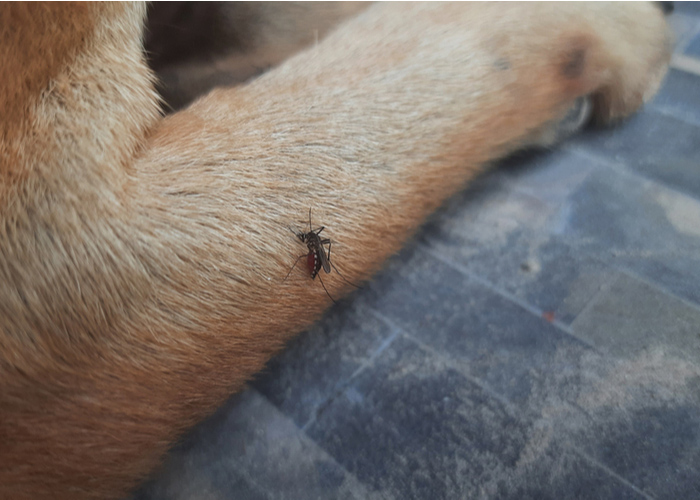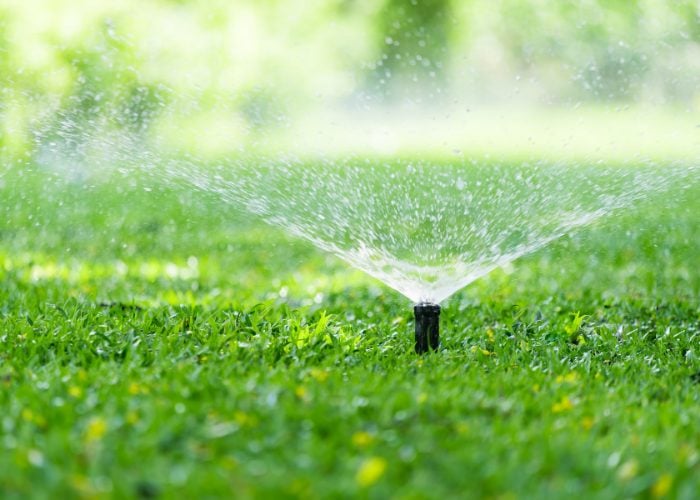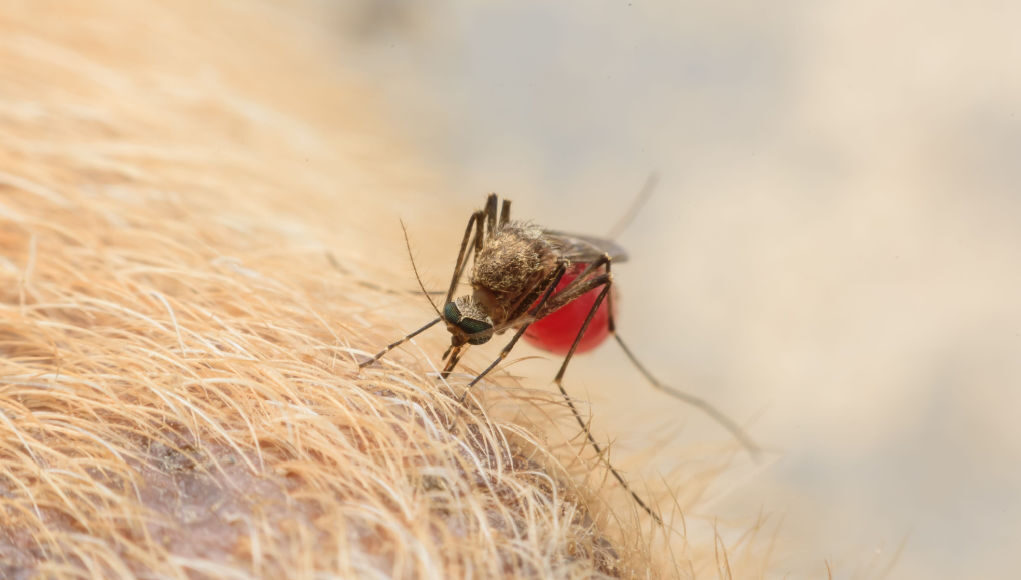Table of Contents
- Do Mosquitos Bite on Dogs?
- Do Mosquitoes Bite Through Fur?
- Where Do Mosquitoes Usually Bite Dogs?
- Why Are Mosquitoes Attracted to My Dog
- Signs of Mosquito Bite on Dogs
- How Long Does It Take For Mosquito Bites to Go Away on Dogs
- Mild Risks of Mosquito Bites on Dogs
- Moderate Risks of Mosquito Bites on Dogs
- Severe Risks of Mosquito Bites on Dogs
- How to Prevent Mosquito Bite on Dogs
- Remove Stagnant Water
- Keep Your Dog Inside During Mosquito Active Hours
- Install Screens Throughout Your House
- Trim Your Lawn and Yard
- Use Fans to Create a Breeze
- Employ Air Conditioning Inside the House
- Use Dog-Safe Commercial Insect Repellent
- Talk with Your Neighbor about Mosquito Issues
- Grow Mosquito Repellent Plants
- Resort to Alternative Essential Oil-based Repellents
- How to Treat Mosquito Bite on Dogs
- Mosquito Bites on Dog: Final Thoughts
Spring and summertime are mosquito seasons where they become active, feast on their victims, and repopulate.
You have seen their effects on humans, but can dogs get mosquito bites too?
How do mosquito bites affect our pet dogs?
If you are wondering do mosquitoes bite dogs, then this blog post is for you!
This article contains information about the effects of mosquito bites on dogs. It also contains tips on what to do when mosquitoes bite dogs.
Do Mosquitos Bite on Dogs?
So the million-dollar question goes: Do mosquitoes bite dogs?
Unfortunately, they do. In fact, mosquito bites on dogs are as common as they are on humans.
Like us, dogs are also susceptible to mosquito infestation, instantly becoming a threat to your beloved pets.
Not only do these pests bite the victims, but they suck their victim’s blood as well.
Just from how mosquitoes feed from its victim, they can cause a myriad of health issues both for people and pet dogs alike.
They are notorious for dealing with diseases that range from mere irritants to severe death disease.
No one is safe from mosquito attacks, regardless if it's the owners or their pet dogs. That’s why it’s essential to ward off mosquitoes from your dogs!
If you can protect yourself from mosquitoes, why can’t you do it for dogs too?
Do Mosquitoes Bite Through Fur?
You may be thinking that furs can single-handedly deter mosquitoes from biting your pet dogs.
After all, mosquitoes attack humans because they lack the fur that should protect us from these vampire pests.
Surely the mosquitoes won’t bite if it’s a creature with thick-coat fur, right?
Not so fast.
It turns out that your pet dog is not safe behind their thick furs.
Mosquitoes are small and nimble insects that can easily slide under the furs of your dog. Taking a bite on your dog despite the thick furs won’t be challenging for these pests.
Another thing to note is that mosquitoes bite skins, not fur. There’s always a spot or two on your dog’s body that’s not covered with much fur.
Those would be the vulnerable spots where mosquitoes can easily feast on their hosts.

Where Do Mosquitoes Usually Bite Dogs?
Mosquitoes usually are not picky with their feasting spots on their targets either.
Ideally, mosquitoes prefer a wide surface of your pet’s skin where they can pick a spot and bite their victim.
The areas on your dog’s body that have a wide surface are their back, legs, and even forehead.
Mosquitoes will mostly like to bite on the joints of dogs as well.
These are the parts of the body that bends often and reveals more skin. It also has less fur for mosquitoes to deal with.
But as long as they can land on their target’s skin, it really doesn’t matter what part of the body they pick.
Either way, the mosquitoes will be happy little pests if they find a spot where they can place a bite.

Why Are Mosquitoes Attracted to My Dog
Mosquitoes could be a danger for your pet dogs through their bites. As mentioned, furs are not your dog’s best bet in shielding itself against mosquito attacks.
Seeing that mosquito bites are more common than you assumed, you may be wondering why mosquitoes are attracted to your dogs.
Here's why…
Mosquitoes aren’t attracted to just dogs or humans only. They’re attracted to almost anything that their receptors can detect.
Mosquitoes have receptors that allow them to pick up lactic acid, sweat, and carbon dioxide that most creatures excrete.
These indicators are what help mosquitoes to locate their target and an ideal area to bite them.
So as long as the creature is warm-blooded and exhales carbon dioxide, it would become a constant target of mosquito attacks.
It just so happens that dogs are among those animals too.
Signs of Mosquito Bite on Dogs
Identifying the bug that bit your dog should be your first step in protecting your pets.
If you can identify a mosquito bite on your pet dog, you can treat the bite fast and cure your dog faster.
So how will you know if a mosquito has ever bitten your pet dog? What does a mosquito bite look like on a dog?
Mosquito bites are similar between humans and dogs.
You can identify these mosquito bites as little red firm bumps on their skin. These bumps have irregular shapes and can appear swollen or inflamed depending on how serious the problem is.
If the bumps are smaller, you’ll have a hard time finding the bitten area, even if your dog is hairless.
You should check for indirect indications such as unusual behaviors in dogs, which include restlessness, frequent scratching, and even biting.
How Long Does It Take For Mosquito Bites to Go Away on Dogs
A mosquito bite on dogs can heal faster compared to other bug bites and stings.
It only takes a few days for the itch to go away, while the swelling may stop in about a week or so.
Mosquito bites heal at a varying pace depending on whether or not your dog irritated the wound even more.
It can also depend on how consistent you are in treating your dog’s bite bumps.
Mild Risks of Mosquito Bites on Dogs
On their own, mosquito bites do not pose any serious threats to your dogs.
Unlike other types of bug bites, mosquito bites are neither poisonous nor flesh-tearing. Sure, it can be irritating for your dogs, but that’s only as far as mosquito bites can bring them.
Below are the mild risks associated with mosquito bites on dogs.
Swelling
Red bumps are the result of how your dog’s bodies react to mosquito bites.
When mosquitoes bite dogs, they pierce the skin so that they can feast on their target’s blood.
As these insects feed on their target, mosquitoes secrete saliva directly to their targets.
The mosquito’s feeding process forces the dog’s immune system to react to the foreign bodies inside the system. This, in turn, results in inflaming the bitten area.
The common patterns around mosquito bites are patches of red swollen skin and distinguishable bumps on the bitten area.
Inflammation on the bitten area may vary from one dog case to another as it depends on how the dog’s body reacts to the bite.
Itchiness
Itchiness and skin swelling are two common symptoms of inflammation. More often than not, swollen skin is itchy skin as well.
As a result, these swollen areas can be annoying and irksome.
The best thing to do with the swelling bump is to leave them to heal.
But dogs with a strong sense of impulse will scratch the bitten areas uncontrollably. This irritates the swelling and could lead to further complications.

Moderate Risks of Mosquito Bites on Dogs
Some risks of mosquito bites become moderate when the health issues go way beyond itchy skin.
Normally, mosquito bites on dogs are minor issues and inflammation of the skin.
But when the swollen areas get agitated, they can become serious problems that take more than a week to heal.
So what are the moderate risks of mosquito bites on dogs?
Chronic Skin Symptoms
Agitated inflamed skins become chronic instead of healing faster. Below are some of the more serious skin symptoms of mosquito bites on dogs.
- Rashes form and appear mostly as welts, clustered bumps, and even clustered swollen raised skins.
- Hot spots cause fur loss on the affected areas as bruises and rashes-like symptoms appear.
- Blisters are painful swollen areas that inflate, separating the skin from the flesh itself.
It’s important to know these specific skin symptoms so that you can administer the right treatment to your dogs.
Infections
If there are serious skin breaks on your dog’s skin, the chance of your dog getting infections increases.
Constantly scratching the skin can wound the affected area, opening your dog’s body to nasty infections.
Unlike skin-related symptoms, infections can have either external or internal symptoms.
Some of the external symptoms include:
- Pus forming
- Abnormal swelling
- Paleness of skin
Common internal symptoms, on the other hand, include:
- Fever
- Diarrhea
- Vomiting
- Erratic behavior
- Uneasiness
Allergic Reactions
Did you know that mosquito bites can trigger allergic reactions in your dogs?
Bug bites like that of a mosquito are some of the most common allergens for dogs. A bite from them can deliver a serious allergic response to your dogs.
Some of the symptoms of dog allergies are:
- Sneezing
- Runny nose
- Difficulty in breathing
- Facial Pressure of Pain
- Watery Eyes
Severe Risks of Mosquito Bites on Dogs
Mosquito bites can also pose a serious health risk to your pet dogs. Some of these severe risks are dangerous and borderline life-threatening.
What makes mosquito bites deadly are the various pathogens that the mosquito carries from one host to another.
Dogs suffer most from the deadly symptoms of the viral infection rather than the effects of the bite itself.
Some of the mosquito-borne diseases are:
- West Nile Virus
- Malaria
- Tularemia
- Eastern Equine Encephalitis Virus
- Venezuelan Equine Encephalitis Virus
But among the large list of infections that mosquitoes can carry, you should look out more for heartworm disease.
Heartworm Disease
Heartworm disease is an infestation of worms inside the dog’s body.
Mosquitoes transmit the disease through the egg of the worms. They get the worm’s egg from a host and then transmit it to a new host – in this case, your dog.
When the eggs hatch, they travel to your dog’s circulatory system like their lungs, heart, and even arteries.
As they grow old, they clog the crucial blood vessels of your dog. These worms also cut the supply of blood from other parts of the body.
These worms can suffocate the dog, fail their lungs, and can kill them with complications. Some of the symptoms of heartworm disease are:
- Frequent coughing
- Vomiting blood
- Fatigue
- Appetite loss
- Weight loss
RELATED: 4 COMMON TYPES OF WORMS IN DOOG POOP
How to Prevent Mosquito Bite on Dogs
Understanding how mosquitoes affect dogs is important in taking up action against these pests.
Without prior knowledge of mosquito bites is dangerous and even outright irresponsible as a dog owner.
Not only are you putting your dog’s life at risk, but it can also incur a lot of costs for the dog’s treatment.
So how do you prevent mosquito bites on dogs? Below are practical ways to do it.
Remove Stagnant Water
Make sure to empty the water from these containers or completely remove the containers when not in use.
An alternative for emptying if the container needs to have some liquid on it is making sure that the water is continuously flowing in it.
Some common breeding grounds for mosquitoes within and around your house that you need to check are:
- Water Puddles
- Potholes
- Floodplains
- Used Tires
- Buckets
- Unoccupied Planters
- Trashcans
- Gutters
- Unclean Vents
- Dog Food Plates
Keep Your Dog Inside During Mosquito Active Hours
Most mosquito species thrive during the night. They start becoming active during dusk and become passive before the sun rises.
As such, you should walk your pets outside during the daytime when there is still sunlight and stay indoors when the sun sets.
In this way, you’ll avoid most of the mosquitoes’ active hours and, potentially, a mosquito bite.
Install Screens Throughout Your House
If you’re house harbors mosquito infestation, it won’t really matter if your dog is inside or not at any given time.
Installing screens at every entrance can help control the number of mosquitoes inside your house.
Mesh screens have fine holes that let in the air inside while keeping the bugs outside. Screens also let sunlight in rather than trying to block the passageway altogether.

Trim Your Lawn and Yard
Nothing makes a front lawn area look like wildlife than tall grasses and thick bushes.
Tall grasses in your yard can house one of the nastiest mosquito infestations in your vicinity.
Frequently trimming your grass and practicing yard hygiene help control the mosquito breeding spots in your space.
Your pet dog will love to roam around and play in a clean-looking yard as well.
Use Fans to Create a Breeze
You can use fans to create a breeze inside and outside your house.
A standing fan indoors that runs at a moderate speed helps ward off mosquitoes in the vicinity. A standard ceiling fan placed outdoors does the trick too!
Employ Air Conditioning Inside the House
A/C units strip the mosquitoes with much-needed heat that aids metabolism and movement.
Like fans, they also create a cool breeze that makes mosquitoes unable to fly and limits their movement.
With proper ventilation throughout the room, the cool air disrupts the circulation of carbon dioxide in the room.
This makes it harder for mosquitoes to trace the carbon dioxide circulation back to its source, your dog.
Use Dog-Safe Commercial Insect Repellent
The most practical way to protect your dog from mosquito bites is with commercial-grade insect repellents and sprays.
Commercial insect repellents are effective products that had passed regulations and quality assurance before they become available in the market.
Because of their availability, you can always get a hold of these products and apply them to your pet dogs whenever you need them.
Some insect repellents in the market, however, have formulations and ingredients that may be toxic to your pet dogs.
You should never try using insect repellents for humans to your dogs. These products contain chemicals like DEET and Picaridin that are highly toxic for your beloved pets.
Some of the dog-safe mosquito repellents that are available in the market are as follows:
- K9 Advantix II
- PetArmor Plus Flea and Tick Prevention
- Absorbine Ultrashield EX
- Wondercide Flea, Tick, and Mosquito Spray
- Vet’s Best Mosquito Repellent
Talk with Your Neighbor about Mosquito Issues
You can have the perfect mosquito countermeasures, but if your neighbor has bad yard hygiene, all efforts will be useless.
Educating about the effects of mosquitoes to them can change their mind about helping curb mosquito infestation.
You can also talk to them about how they can practice yard hygiene and ward off mosquitoes in their house.
In this way, mosquitoes have zero chance of breeding within your vicinity.
Grow Mosquito Repellent Plants
Did you know that some plants can deter mosquitoes?
Growing mosquito-deterring plants is a passive way to reduce these blood-sucking infestations within your household.
A lot of these plants are fragrant to us humans and even more soothing to our pet dogs. You can plant them in your pet’s favorite spot or in areas where your dog frequently stays.
Some effective mosquito-repellent plants that you can start growing now are:
- Lavender
- Citronella
- Sage
- Allium
- Basil
- Catnip
- Rosemary
- Marigold

Resort to Alternative Essential Oil-based Repellents
What’s more effective than mosquito-repelling plants? It’s their essential oil!
Essential oils found in these plants are responsible both for the wafting aroma and the mosquito-repelling abilities.
While these oils are fragrant for us humans, they are irritating to the mosquitoes’ weak respiratory system. Because of these properties, essential oils make a good alternative to some of the expensive insect repellents on the market.
You can extract essential oils yourself from plants, or you can also buy them at the market for a price.
When you extract your own essential oils, it’s important to know that these oils are potent. These extracts are poisonous in large dosages and can harm your dogs.
As such, we highly recommend that you dilute your extracts in neutral and carrying oil like coconut oil before applying it to your pet dogs.
Talking with a veterinarian also helps with the right formulation of essential oils for your pet.
On the other hand, do take note that essential oils in the market lack EPA regulation.
This means you won’t know the purity of the oil, the additional ingredients added, and other information you ought to know.
You are also risking yourself buying an ineffective product that’s probably not worth the cost.
Some essential oils that you may want to consider are:
- Lavender
- Peppermint
- Citronella
- Lemongrass
- Lemon
How to Treat Mosquito Bite on Dogs
Prevention can only do so much in protecting your dogs from mosquito bites.
You should also know how to treat mosquito bites if your dog ever got one. Below are the following ways to treat these specific bites on dogs.
First Aid for Mosquito Bites on Dogs
First aid works to treat your dog’s irritation or to give them some temporary comfort.
If you’ve spotted a mosquito bite, you should immediately clean your dog’s affected areas. Wash your dog’s mosquito bite using clean water and soap.
Washing open skin wounds helps reduce the chance of infection.
You can also apply a cold compress on the swollen area, as the cool sensation reduces pain and gives relief.
Lastly, you may want to wrap the mosquito-bitten area with gauze or bandages to further prevent infection.
Over-the-Counter Treatments
There are readily available treatments in the market that you can use to treat mosquito bites on dogs.
For instance, Neosporin is an effective ointment that further reduces the infection risk in open skin wounds.
Hydrocortisone creams for dogs also help alleviate most serious skin ailments.
Some homeopathic creams and solutions also work wonders for pets.
The creams can serve as a great dog mosquito bite treatment that can help soothe the swelling skin of your dogs.

Talk to your Veterinarian
Seeing a veterinarian is important in treating your dog for mosquito bite cases. They are qualified experts with the right knowledge to deal with mosquito cases.
A consultation with your local vet can give you the proper formulation of your various preventive measures.
They know the first aid for dogs and will give the right medication for mosquito-related diseases.
Make sure to talk to your vet and seek their advice about protecting, treating, and curing your dogs from mosquito attacks.
Mosquito Bites on Dog: Final Thoughts
First, we have discussed how dogs are easy targets of mosquitoes. Like its effects on us, mosquito bites on dogs can pose a serious threat to them if left untreated.
Because of this risk, you should know not only treating the bites but also how to prevent mosquito bites on dogs.
And with this set of knowledge at your disposal, you’re ready to set up protective measures in case mosquitoes bite dogs again.













